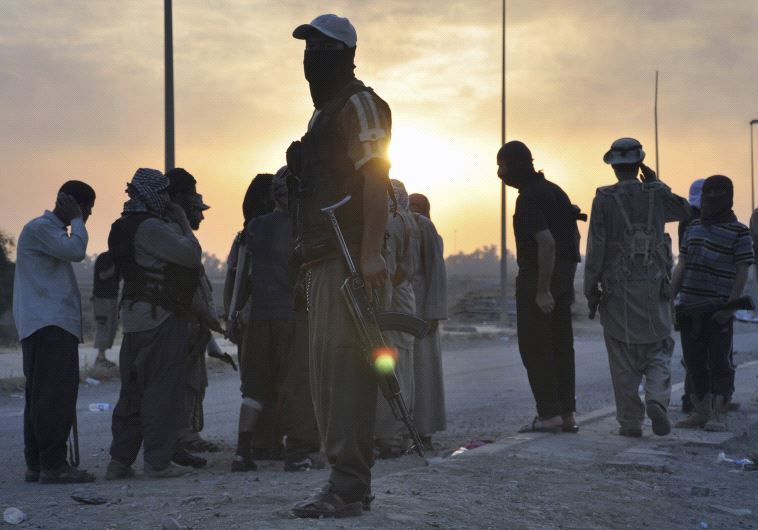Report: Israel, ISIS interests aligned against Iran
The new Meir Amit Intelligence and Terrorism Information Center report in no way suggests any formal alliance between ISIS and Israel.
 ISIS fighters stand guard at a checkpoint in the northern Iraq city of Mosul.Updated:
ISIS fighters stand guard at a checkpoint in the northern Iraq city of Mosul.Updated: